11 easy ways to eat less meat
Going meatless may help your waistline and lower your risk of diabetes, cancer and heart disease.
Updated on October 16, 2025
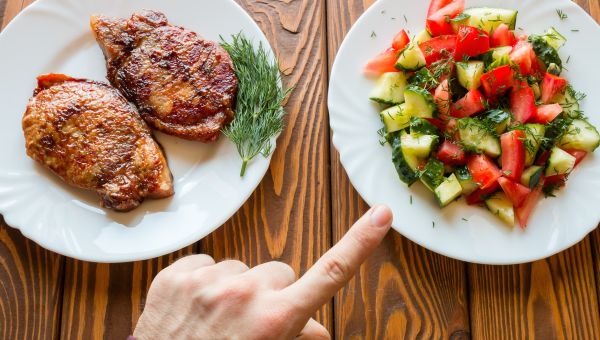
A vegetarian diet may help you stay slim, improve your cholesterol levels and decrease your risk of chronic illnesses such as diabetes, cancer and cardiovascular disease, too. In fact, National Geographic Fellow and author Dan Buettner determined five communities with the highest life expectancy, and called them Blue Zones. Buettner found that the people living within these communities were eating meat—usually pork—only five times per month, and loading their plates with plant-based foods instead.
If you’re thinking about adopting a plant-based diet, here’s what you need to know to ensure you’re getting the proper nutrients.

Almost everyone can do it
Almost anyone can go meatless, says nutritionist Auburn Fowler of Grand Strand Medical Center in Myrtle Beach, South Carolina.
Even breastfeeding mothers and young children can benefit from a diet with little or no meat. However, it’s important to talk with your healthcare provider before you make any major changes to your diet. And it’s important that you take time to plan to make sure you don’t have any nutritional gaps, especially for kids.
If you’re allergic to certain foods, you’ll want to be cautious. “I would be careful if you have a lot of food allergies, specifically to soy, corn or wheat, because that would eliminate many foods that would normally bulk up a vegetarian diet.”
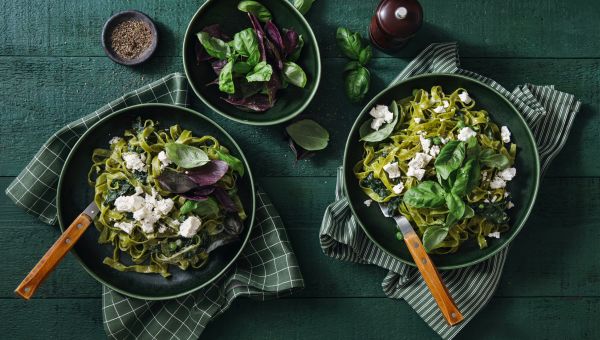
Try “Meatless Mondays”
If you’re eating several servings of meat each week, the easiest way to lower your intake is to eliminate meat from one meal or day each week. You’re more likely to stick to your plan if you make gradual changes.
There’s even a global movement to help you! The “Meatless Monday” movement encourages countries around the world to improve their health, protect the environment and to save money by eating less meat.
“It’s easy to start with one meal because you know you’re not going to be impacting your overall nutrient intake for a day or a week. Then, you can get more comfortable with the change,” says Fowler. “Try going meatless for one day a week, then you can increase it from there.”
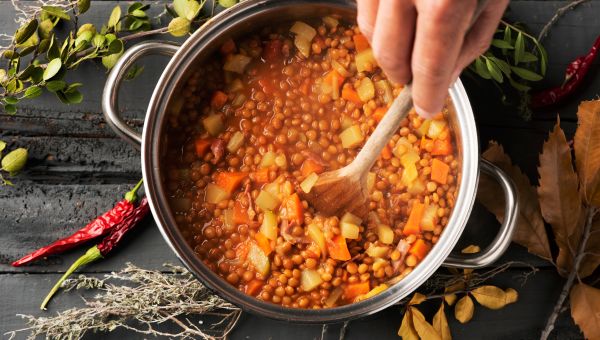
Eat more beans and lentils
Legumes like beans, peas and lentils are packed with protein and fiber, and can be added to many dishes. “They can really help fill you up, too,” says Fowler.
Adding kidney, black, white and red beans to your diet can improve your cholesterol and lower your risk of heart disease and type 2 diabetes, too. Lentils reduce inflammation, stabilize blood sugar and are filled with potassium, phosphorus, magnesium, calcium and iron.
Try throwing beans and peas into soups, whole-grain tortilla sandwiches, pasta salads and sautéed veggies. Lentils are great in rice, salads and soups.
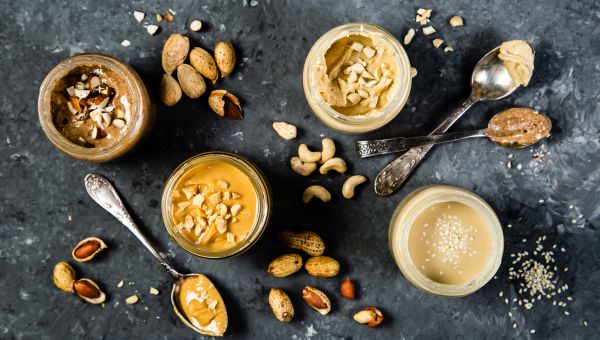
Load up your cart with nut butters
Any butters that come from seeds are very beneficial, says Fowler. Nut butters like peanut, almond and cashew are easy to find in the grocery store and are packed with protein, fiber, folate, antioxidants and healthy fats. But look for options without added salt and sugar, and avoid reduced-fat options if you can.
Try an old-fashioned nut butter and banana sandwich on whole-grain bread, or try adding a scoop to your steel-cut oatmeal or spinach smoothie in the morning. If you really want to get creative, try a grilled cheese with apples and nut butter or Asian noodles dishes that require almond or peanut butters.
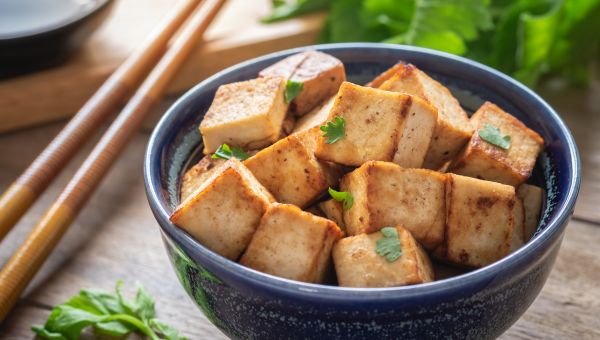
Don’t be afraid of tofu
Tofu is a food that scares many non-vegetarians, says Fowler. But the best thing about this meat-free option is that you can season and prepare it just about any way you want.
Tofu, a product of soybean curds, is super low in calories and packed with protein, iron and calcium, and can help lower your cholesterol. Studies also show that young girls who consume a moderate amount of soy before they reach adulthood may lower their risk of breast and ovarian cancers.
Try substituting tofu in meals that would otherwise have meat, like spaghetti sauce, grilled kabobs, salads, chili, soups and stir-fry.
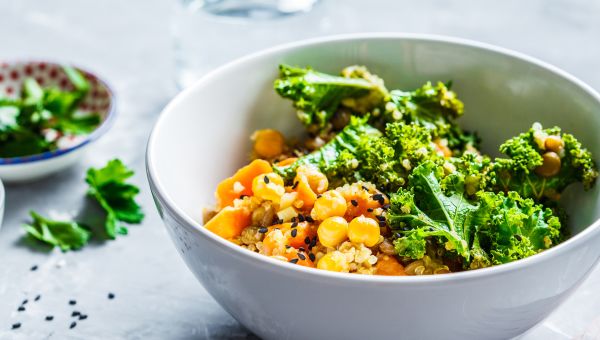
Experiment with chickpeas
Chickpeas, otherwise known as garbanzo beans, aren’t just for making hummus (although hummus is healthy and yummy, too)—they’re another healthy, affordable and meatless ingredient you can cook with.
Chickpeas are loaded with vitamin B6, protein, calcium, magnesium, zinc, vitamin K and fiber, which may improve your bone health, blood pressure and cholesterol levels.
It’s easy to prep falafel pitas, chickpea burgers or soups filled with chickpeas, and roasted chickpeas with sea salt make a great snack or salad topper. Looking for a sweeter snack? Try roasting them with brown sugar.
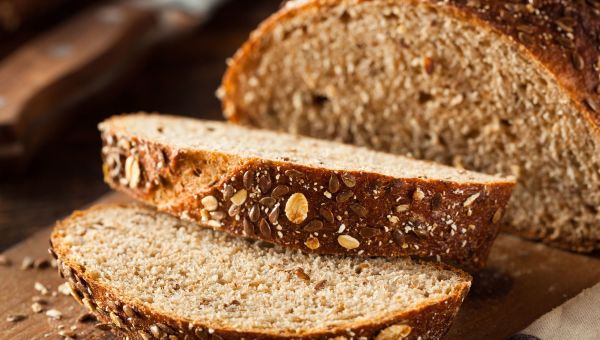
Stock up on whole grains
The good thing about a vegetarian diet is that you can enjoy healthy carbs such as breads, potatoes and corn, says Fowler.
Plain, whole grains like brown rice, quinoa and whole grain pasta may help you manage your weight and reduce your heart disease, stroke and type 2 diabetes risk. Grains can also help regulate your blood pressure and reduce inflammation.
“Try fortified foods and drinks like cereal, oatmeal, orange juice and soy milk, in addition to your normal breads and rice,” says Fowler. These foods are filled with nutrients like iron, B12 and folate you may be missing from your diet when go meat free.

Get creative with eggs
If your vegetarian diet doesn’t eliminate eggs, the protein-packed option can be incorporated into any meal.
Eggs have iron, vitamins A, D and B12. Because egg yolks contain cholesterol, it’s recommended that you eat no more than four egg yolks per week If you have a history of cardiovascular disease, says Fowler.
Besides the usual breakfast items like vegetable omelets, scrambled eggs and egg and cheese sandwiches on whole-grain toast, try topping salads with hardboiled eggs or pairing them with an apple for well-balanced snack.
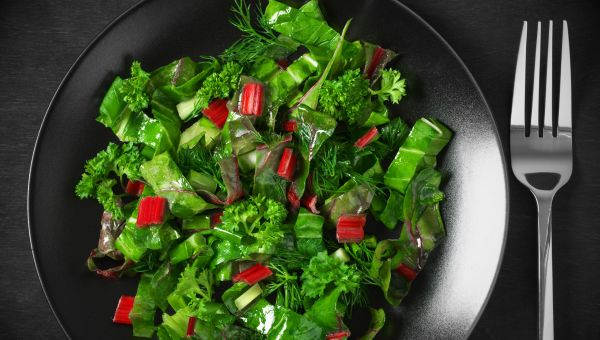
Don’t forget your leafy greens
You know green vegetables are key to a vegetarian diet, but do you know which health benefits they provide?
Salad greens, kale and spinach are all packed with vitamins A, C, E and K, and other veggies like broccoli, bok choy and mustard greens are loaded with B vitamins, too. Plus, they contain antioxidants, fiber, iron, folate magnesium, potassium and calcium. What don’t they have? Sodium, cholesterol and carbs.
Think beyond the salad bowl and make lettuce tacos and wraps, soups, stir-fry or simply steam them with fresh onions and sea salt.
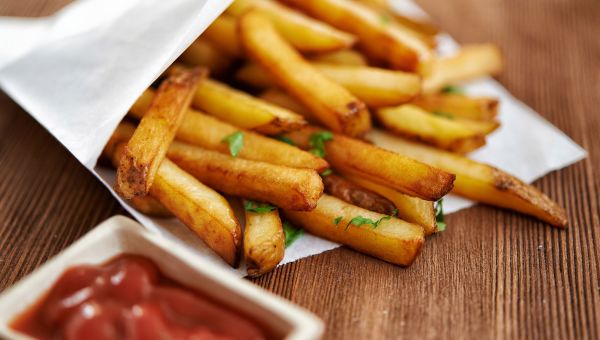
Avoid loading up on empty foods
Avoid replacing meat with empty carbs that aren’t going to provide much nutritional value, says Fowler. It’s easy to reach for unhealthy comfort foods when you’re not eating what you’re used to, but doing so will negate the benefits of going meat-free.
“Don’t be afraid of expanding your horizons and trying new foods,” says Fowler. A low-meat diet doesn't have to be boring and you don't have to sacrifice flavor. “Even when you’re dining out, there are plenty of ways to make a dish vegetarian. Ask for the meat to be omitted or for any substitutes they might have,” says Fowler.
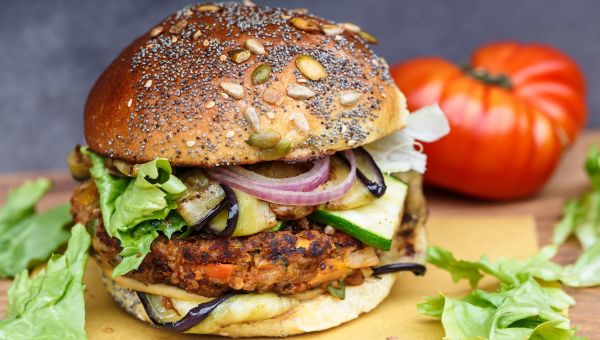
Embrace meatless options
Fortunately, many food corporations are creating meatless options that are seasoned or prepared just as meat would be. “You think you’re having meat, but you’re actually reducing your intake of cholesterol and saturated fat,” says Fowler.
There are all sorts of “fake” meat products out there, like vegetarian bacon, turkey, hotdogs, chicken tenders, meatballs and burgers. They’re actually made of black beans, tofu or veggies! “Veggie and black bean crumbles go great in chili and spaghetti,” says Fowler. Try subbing one of these options in on your meat-free day; you won’t even miss the beef!
More On


video

article

slideshow


video


video
